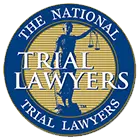Step-by-Step Guide to the Legal Process After a Car Wreck in Houston
Being involved in a car wreck can be a life-altering experience, leading to physical injuries, emotional distress, and financial burdens. Navigating the legal process to secure fair compensation can be overwhelming, especially if you’re unfamiliar with the complexities of personal injury law. This is where a specialized car wreck lawyer in Houston becomes invaluable. At Sandoval Law Firm, we guide you through every step of the legal process, ensuring that your rights are protected and that you receive the compensation you deserve.
In this blog, we’ll take you through the comprehensive legal journey you can expect when working with a car wreck lawyer in Houston. From the initial consultation to the final resolution of your case, understanding each phase of the process can help you feel more confident and informed as you seek justice. Let’s dive into the key steps involved in handling a car wreck case in Houston.
We focus on providing exceptional service to our car wreck clients by making sure we are always available to answer any questions about legal process. - Car Wreck Lawyer Hector L. Sandoval
Call Auto Accident Lawyer Hector Sandoval Now at (346) 347-7777
- Initial Consultation
- Hiring the Lawyer
- Investigation and Evidence Gathering
- Filing Insurance Claims
- Demand Letter
- Negotiation with Insurance Companies
- Filing a Lawsuit
- Discovery Process
- Pre-Trial Motions
- Mediation or Settlement Conference
- Trial Preparation
- The Trial
- Post-Trial Motions
- Appeal Process
- Collection of Settlement or Judgment
- Case Closure
1. Initial Consultation
Free Case Evaluation: The lawyer reviews the details of your accident to determine if you have a viable claim.
Discussing the Accident: A thorough discussion of the incident, including injuries sustained, property damage, and the impact on your life.
2. Hiring the Lawyer
Signing a Retainer Agreement: Formalizing the attorney-client relationship and outlining the terms of representation.
Understanding the Fee Structure: Typically on a contingency fee basis, meaning the lawyer only gets paid if you win.
3. Investigation and Evidence Gathering
Collecting Evidence: Gathering police reports, medical records, witness statements, and photos or videos of the accident scene.
Consulting Experts: Working with accident reconstruction experts, medical professionals, and other specialists to build a strong case.
4. Filing Insurance Claims
Submitting a Claim: The lawyer helps you file a claim with your insurance company and/or the at-fault party’s insurer.
Handling Adjuster Communication: The lawyer manages all communication with insurance adjusters to prevent you from saying anything that could harm your case.
5. Demand Letter
Preparing and Sending a Demand Letter: The lawyer sends a detailed letter to the at-fault party’s insurance company outlining your injuries, damages, and the compensation you are seeking.
6. Negotiation with Insurance Companies
Settlement Negotiations: The lawyer negotiates with the insurance company to reach a fair settlement, often using their knowledge of similar cases to argue for higher compensation.
Evaluating Settlement Offers: Assessing whether the settlement offer is fair and advising you on whether to accept it or continue negotiating.
7. Filing a Lawsuit
When Negotiations Fail: If a fair settlement cannot be reached, the lawyer will file a lawsuit on your behalf.
Drafting and Filing a Complaint: The formal legal document outlining your case against the at-fault party is prepared and filed with the court.
8. Discovery Process
Exchange of Information: Both parties exchange information, including evidence and witness lists.
Depositions: Taking sworn testimony from involved parties and witnesses under oath.
Interrogatories and Requests for Production: Written questions and requests for documents that must be answered under oath.
9. Pre-Trial Motions
Filing Pre-Trial Motions: These can include motions to dismiss the case, motions for summary judgment, or motions to exclude certain evidence from being presented at trial.
10. Mediation or Settlement Conference
Attempting to Settle Out of Court: Often, before a trial, the parties may attempt to settle the case through mediation or a settlement conference, where a neutral third party helps facilitate negotiations.
11. Trial Preparation
Preparing for Trial: If the case goes to trial, the lawyer will prepare by organizing evidence, preparing witnesses, and developing a trial strategy.
Trial Briefs: The lawyer submits legal arguments to the court outlining the case.
12. The Trial
Presenting Your Case: The lawyer presents evidence, calls witnesses, cross-examines the opposing party’s witnesses, and makes opening and closing statements.
Jury Deliberation and Verdict: If the case is before a jury, they will deliberate and render a verdict. If it’s a bench trial, the judge will decide.
13. Post-Trial Motions
Filing Post-Trial Motions: If necessary, the lawyer may file motions for a new trial or to alter or amend the judgment.
14. Appeal Process
Appealing the Decision: If the outcome of the trial is not favorable, the lawyer may advise you on filing an appeal to a higher court.
Appellate Briefs: The lawyer prepares and submits briefs to the appellate court, arguing why the trial court’s decision should be reversed or upheld.
15. Collection of Settlement or Judgment
Enforcing the Judgment: If you win your case, the lawyer will assist in collecting the settlement or judgment, which might involve negotiating payment terms or enforcing the judgment through court orders.
16. Case Closure
Finalizing the Case: The lawyer ensures all aspects of the case are resolved, including the payment of medical liens and other related expenses.
Client Satisfaction and Follow-Up: The lawyer may conduct a follow-up to ensure you are satisfied with the outcome and the legal services provided.
You should be able to figure out whether your lawyer has the type of experience you need in your case by meeting and speaking directly with your lawyer,” said auto accident attorney Hector L. Sandoval
If you just had a car wreck and you need some guidance, you need to know that there are some steps that will help you make sure that your battle with the insurance company is not going to be as difficult as it could be. Contact Sandoval Law Firm at (346) 347-7777 to request an initial consultation to discuss your case.
It’s important to note that the fee is contingent or dependent on Sandoval Law Firm, PLLC wining your case. We will collect attorney’s fees when your case is WON and that’s the only way will be able to charge our fee. IF WE DON’T WIN, YOU DON’T PAY!











Leave a Reply
You must be logged in to post a comment.